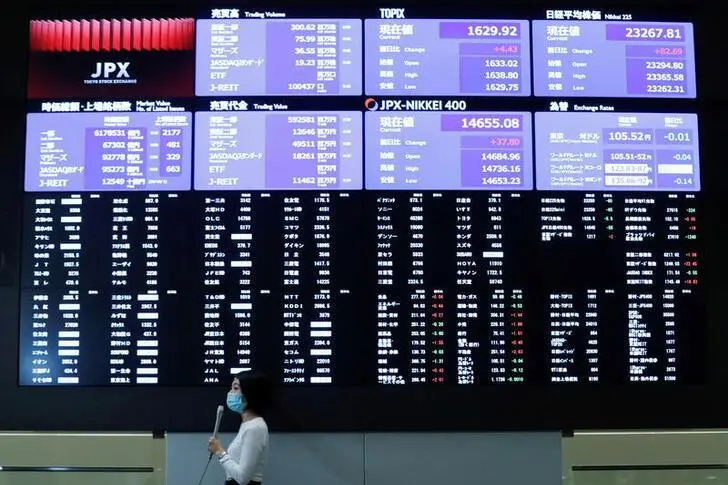PHOTO
TOKYO- Japan's Nikkei share average rose on Tuesday, tracking gains in Wall Street, as investors assessed whether an assassination attempt on U.S. presidential candidate Donald Trump increased his chances of winning the November elections.
The Nikkei closed 0.2% higher at 41,275.08, and the broader Topix finished up 0.34% at 2,904.5.
Japan's markets were closed on Monday for a public holiday.
U.S. stocks ended higher on Monday as bets of a second Trump presidency raised hopes of a looser regulatory environment.
"If Trump were to aggressively implement measures like tax cuts, the stock market is likely to rally," Masahiro Ichikawa, chief market strategist at Sumitomo Mitsui DS Asset Management, said, adding that these expectations prompted buying among Japan's high tech and other shares on Tuesday.
Shares of defence-related Mitsubishi Heavy Industries and Kawasaki Heavy Industries jumped 5% and 6.2%, respectively, to become top gainers, as speculation of a Trump win spurred so-called "Trump trades."
Oil companies were among the best performers by sector, climbing 1.5%.
Profit-taking in the afternoon session, however, capped gains.
The market was also on the lookout for company earnings, with many participants expecting export firms to announce increased revenues amid stubborn yen weakness.
The yen had strengthened against the dollar since Thursday, with many suspecting Tokyo may have intervened to lift the currency away from 38-year lows.
But amid the growing probability that the Federal Reserve will begin cutting interest rates, investors are looking for more clarity on the yen's path, said Masayuki Kubota, chief strategist at Rakuten Securities.
"The market is trying to determine ... whether this is a temporary appreciation of the yen and it will weaken again, or whether the yen's slide is over because the U.S. is about to begin cutting rates."
On Tuesday, electronic components maker TDK Corp rose 5.4% and chip-making equipment giant Tokyo Electron gained 1.1%.
Shares of Uniqlo parent Fast Retailing fell 1.3%.
(Reporting by Brigid Riley; Editing by Sherry Jacob-Phillips)




















